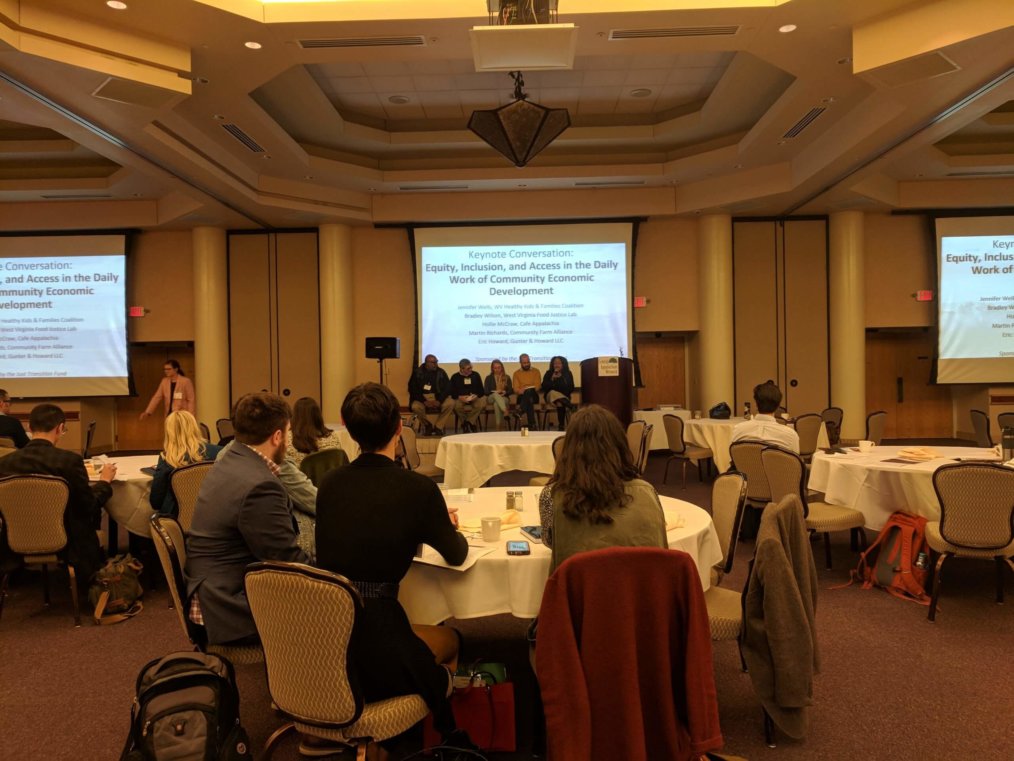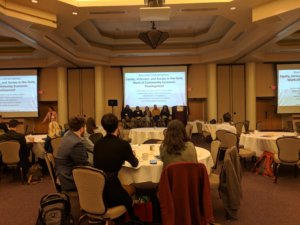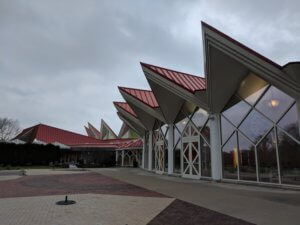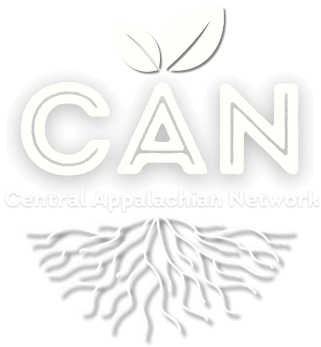
2019 CAN Regional Peer-to-Peer Convening
This past November, the Central Appalachian Network hosted its 2nd Regional Peer-to-Peer Convening at Tamarack in Beckley, WV. Over 100 economic development practitioners, community change makers, funders, and sector experts gathered at the Convening to connect and build their shared regional analysis for the Central Appalachian region. This year’s Convening offered attendees 4 different session tracks to choose from: clean energy, food & agriculture, Creative Placemaking, & cross-cutting issues. Holding true to the peer-to-peer nature of this event, sessions were intended to be participatory and engaging, and were led by regional sector experts and practitioners.

One goal of the Convening was to engage attendees in the cross-cutting issues that affect folks working in every sector in Central Appalachia. On course with last year’s Convening, equity and inclusion became a main theme of the cross-cutting track. The Convening keynote was entitled, “Equity, Inclusion, & Access in the Daily Work of Community Economic Development,” and welcomed a panel of folks working in different sectors, connected by the common theme of increasing equity and inclusion through their work. The panelists led the attendees in breakouts focused on food security, land access, recovery & reentry, workforce development, women’s leadership, and organizational equity. Other cross-cutting issues discussed throughout the event included climate change and resilience, a reuse corridor, and CAN membership and structure.
A significant focus of the Food & Ag track was food security. The Convening hosted 3 food security sessions that focused on replicating promising community-based food security strategies, common measurable outcomes, and identifying replicable projects. Other sessions within the Food & Ag track included barriers for small farm viability, building momentum for regional food distribution and processing, and updates on regional forest farming efforts.
The Clean Energy track sessions were organized primarily by the three committees of the working group: communication, policy and advocacy, and investment. There was an update about the clean energy communications campaign recently completed by Piper Communications, flash talks on regional clean energy policy projects, discussion on mine reclamation project development, and planning for regional solar sights.

The Creative Placemaking track covered a wide variety of topics under the Creative Placemaking umbrella. Practitioners gathered to share about Creative Placemaking projects around the region and discuss the key takeaways from the Creative Placemaking Scan of Central Appalachia published by CAN earlier this year. The track also had engaging sessions on shifting Appalachia’s narrative, downtown development in West Virginia, and community story-telling.
The Convening left attendees with new and deeper relationships beneficial to their work, new knowledge to inform their work, and more opportunities to collaborate with their peers. CAN looks forward to continuing the work in the region that has been energized by the Convening.
